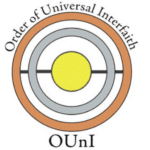Beware the “Universal Church”: Interspirituality in the Next Age
Guest Post By Rev. Tim Miner OUnI
In this past Sunday’s edition of the Washington Post, Professor Stephan Hopgood wrote about the end of human rights.* The second-page title is “Will Religious Freedom end Human Rights?” His lengthy op-ed piece ends with the words, “In this world, religious groups of all kinds have an opportunity to play a greater role in struggles for freedom from hunger and repression than they have done in the decades when secular experts in development and human rights had sway…What the classical human rights movement has achieved is the recognition of each human being as the moral equal of all others. This is a massive feat. But the nationalist, authoritarian and conservative-religious backlash against the language and practices of secular human rights opens the need for alternative forms of mobilization… We are waking from the European dream of one world under global, secular law. The result may be a reinvigorated universal church. Or it may be parallel and permanent zones of freedom and zones of repression…” Will the salvation of human rights in the future be the work of spiritual people? Will there be a “universal church?” I say ‘yes’ to the first question, and an emphatic ‘no’ to the second.
When OUnI sage, Brother Wayne Teasdale defined the ‘Interspiritual Age’ he stated that shifts were “preparing the way for a universal civilization; a civilization with a heart.” Two of the specific shifts he mentioned were the “evolving experience of community between and among the religions THROUGH THEIR INDIVIDUAL MEMBERS;” and, “growing receptivity to the INNER treasures of the world’s religions.” Both of these shifts change the face of spirituality through the individual, not the organization or institution or church. The bottom-line is clear. Interspirituality is about the individual not the collective. Interspirituality is person-centric, not group-based. We, as interspiritual ministers and lay leaders, must always look out for and support the individual. They are the only true instrument of the divine. But if the Interspiritual Age is the rise of the individual, what will the “universal civilization” look like?
Wayne Teasdale’s “universal civilization” and Hopgood’s “universal church” will have to be vessels for the individual to flourish. It is only when there is food, fresh water, clean air, medical care, and a political environment where everyone can find their own spiritual path, will there ever be a true Interspiritual Age. This is our calling then, to change the world so that the individual is the focus. Nationalism is not the answer. Corporations are not the solution. Religions and churches, while they hold the practices that allow the spirit to find its transformation and voice, are not the final outcome. No more heresy. No more doxies. There is ‘no-doxy.’
